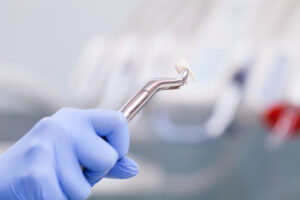People who have lost their natural teeth due to aging, dental problems, or accidents frequently and successfully use dentures. These removable dental devices are intended to fill in tooth gaps and improve the mouth’s appearance and functionality. With dentures, people can regain their ability to chew and speak clearly while enhancing their smile and general quality of life.
The ability of dentures to restore oral functionality is one of their main advantages. A person’s ability to chew and speak can be greatly affected by missing teeth, which can make it challenging to enjoy a variety of foods and communicate clearly. A person can eat a wider variety of foods and speak confidently with the help of dentures, which offer a realistic-looking and functional set of teeth.
Dentures can also significantly improve a person’s appearance. Teeth loss can cause facial muscles to sag, giving the face a sunken and aged appearance. Dentures restore a more youthful and vibrant appearance by completing the facial structure and offering support. They are made specifically to complement each person’s facial features, resulting in a seamless and organic appearance.

Additionally, dentures are essential for preserving oral health. When teeth are missing, the neighboring teeth may shift and realign themselves, causing bite issues and jaw pain. Dentures support improved oral health and prevent further dental problems by maintaining the alignment of the remaining teeth. Additionally, they support the lips and cheeks to avoid them collapsing inward and possibly impairing speech and eating.
Typically, there are several steps involved in getting dentures. The process starts with a thorough oral examination and discussion with a dental expert to identify the best denture for the person’s requirements. Parts or full dentures may be used depending on how many natural teeth are still present. Complete dentures replace every tooth in the upper or lower arch.
Creating a custom-fit denture begins after the treatment strategy is decided upon and mouth impressions are made. This guarantees a snug fit that promotes stability and proper operation. The denture is then created in a dental lab using premium components that closely resemble natural teeth in appearance and feel.
Following the completion of the dentures, the patient is scheduled for a fitting, at which time corrections are made to guarantee a proper fit and bite alignment. Initial adjustments are frequently required because the mouth may need time to get used to the new dentures. Regular dental checkups are advised to monitor the fit of the dentures and make any necessary adjustments.
Dentures must have proper maintenance and care to last a long time and work effectively. Daily cleaning with a denture brush and mild cleanser is recommended to remove food particles, plaque, and stains from dentures. They should be taken out at night and soaked in a denture solution to keep them moist and in shape. Dentures should be handled gently and should never be dropped because they are fragile and can break.
In conclusion, people who have lost their natural teeth can benefit greatly from dentures. They allow people to regain their ability to chew, speak clearly, and maintain good oral health. They also have aesthetic, functional, and health benefits. Dentures can offer a comfortable and long-lasting solution for people looking to improve their smile and quality of life if they are taken care of properly and regularly checked by a dentist.